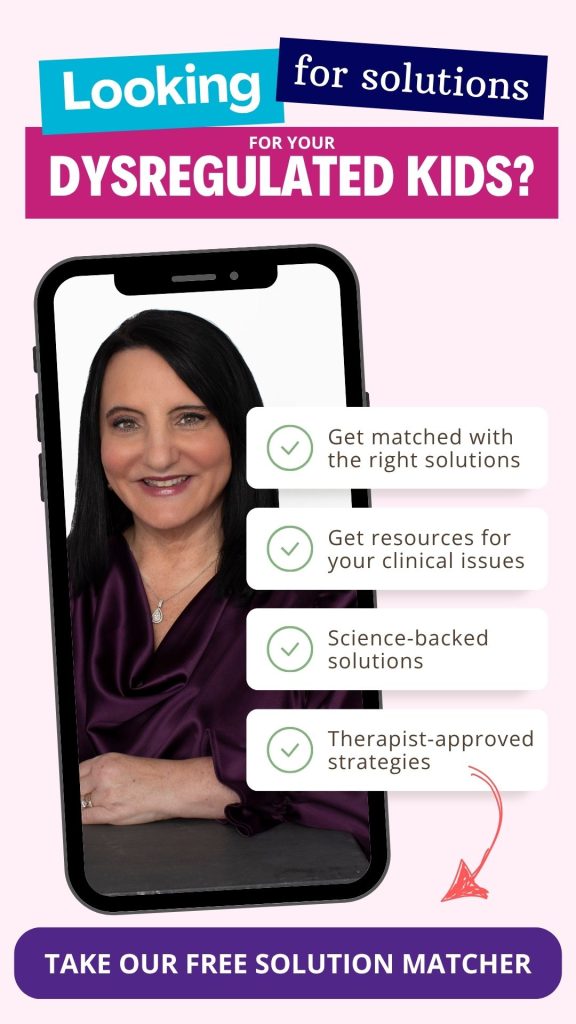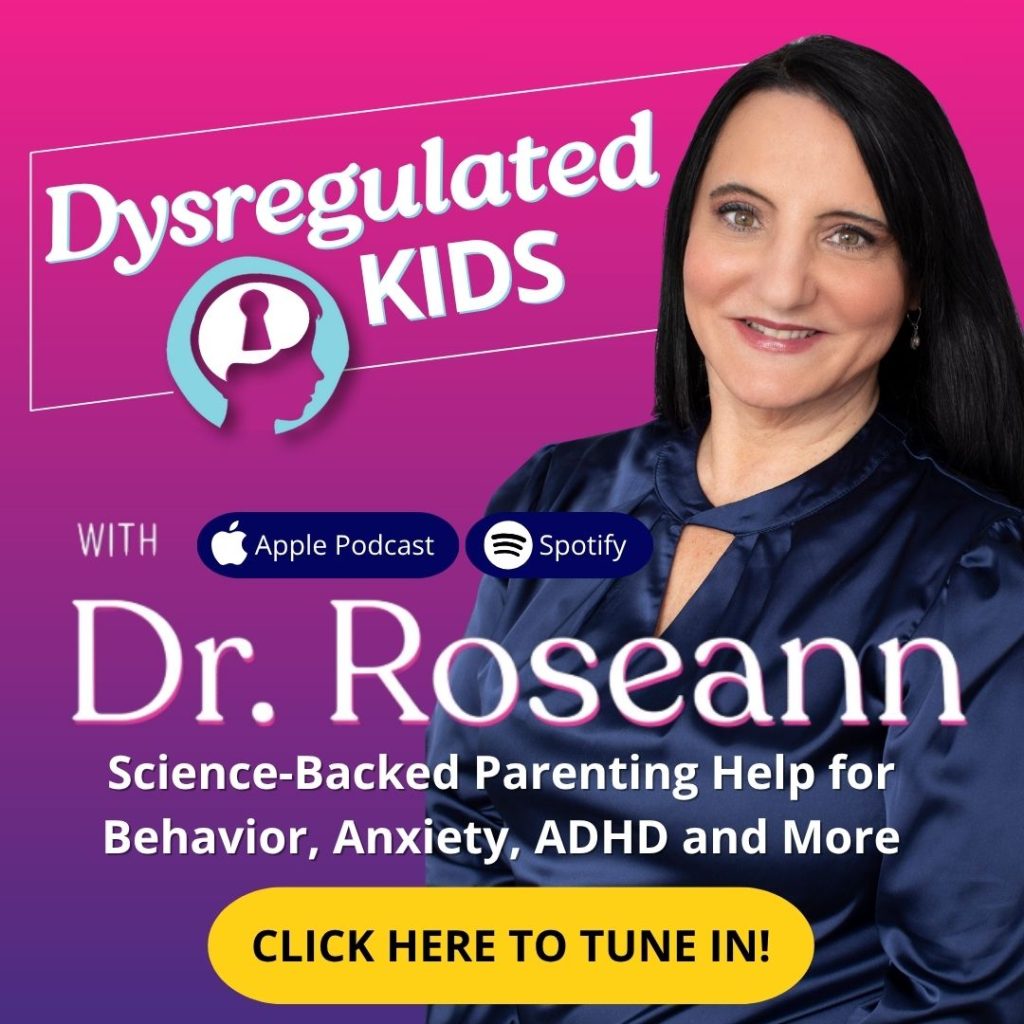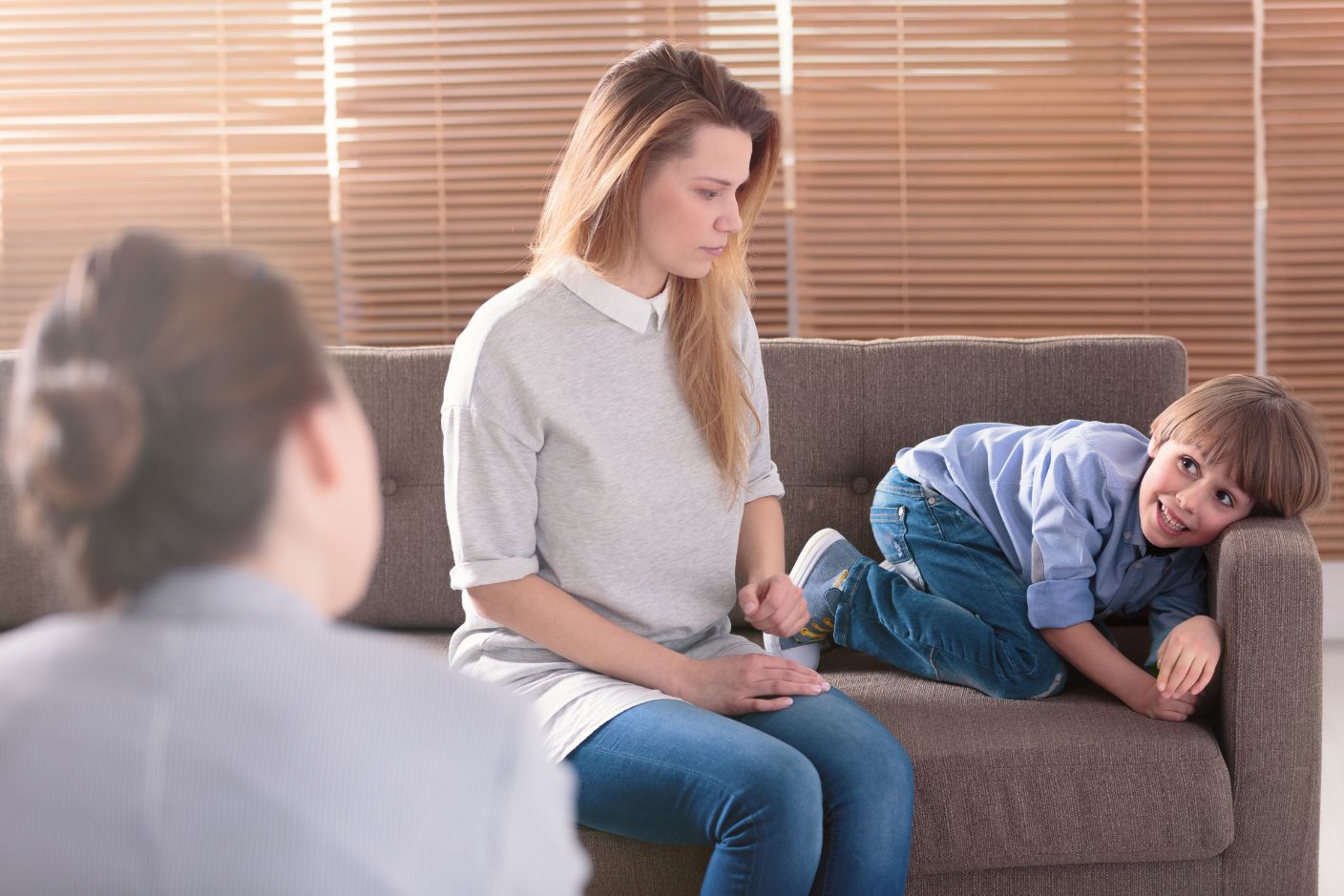
Estimated reading time: 10 minutes
Raising a child with intense emotions can feel like riding a rollercoaster—one moment they’re joyful, the next they’re overwhelmed.
Some kids simply feel more deeply, and while sensitivity often reflects empathy and creativity, it can also bring daily challenges.
When big emotions show up as outbursts or shutdowns, it can be exhausting, especially for moms and dads.
In this guide, you’ll learn simple, practical strategies that actually work—based on brain science and Dr. Roseann’s proven CALMS™ method—to help your child (and you!) manage those big feelings.
Key Takeaways
- Emotional intensity comes from a sensitive nervous system, not “bad behavior” or poor parenting.
- Validating feelings, building emotional regulation skills, and creating a calm environment can make a huge difference.
- Your self-care matters—managing your own stress helps your child regulate theirs.
- Mental health history and patterns matter. Understanding what’s behind your child’s intense emotions helps you respond more effectively.
Understanding Intense Emotions in Children
Some kids feel things more deeply and these intense emotions can come on fast and hit hard, making small issues (like a spilled drink) feel like a big deal. That’s the world of an emotionally intense person or child - where emotions aren’t just felt, they’re felt fully.
Children with emotional intensity often have sensitive nervous systems. They react strongly to what’s going on around them—loud noises, changes in routine, even their own thoughts. And while that can be overwhelming, it’s not something that needs to be “fixed.” It’s part of who they are.
The truth? This isn’t about bad behavior or poor parenting. Some kids are simply born more emotionally sensitive. Understanding that your child’s big reactions come from a wired-in sensitivity—not defiance—is a powerful mindset shift that can help you support them more effectively.

How To Tell If Your Child Has Trouble Regulating Emotions?
If you’ve ever found yourself wondering, “Why is everything such a big deal for my child?”—you’re not alone. Parents of kids who struggle with negative emotions often feel like they’re walking on eggshells, never sure what small thing might spark a major meltdown.
One moment, your child is laughing hysterically. The next, they’re devastated because their sandwich was cut the “wrong” way. These emotional highs and lows can be confusing and exhausting—for both of you.
But here’s the thing, it’s not just about tantrums. Emotional dysregulation can sneak up in different ways.
Signs your child may be struggling with their emotions:
- Big emotional reactions to small problems
- Experience emotional intensity too often
- Fast shifts from joy to tears or anger
- Easily overwhelmed by loud, busy, or chaotic environments
- React strongly to too much sensory input
- Strong empathy—your child may feel what others are feeling
- Sensitive to criticism or conflict
- Difficulty calming down after they’re upset
Helping your child starts with recognizing that this intensity is part of their natural wiring. From there, you can teach them how to manage those feelings, build resilience, and use their emotional depth as a strength.

What Causes Intense Emotions in Children?
Your child’s brain is still developing, and their ability to regulate emotions can easily get overwhelmed, especially when they’re stressed.
Common reasons some kids are more reactive and intense:
- Inborn temperament: Some kids are naturally more sensitive and reactive than others—it’s just how they’re built.
- Dysregulated nervous system
- Sensitive nervous system: Their “fight or flight” response kicks in easily, flooding their body with strong feelings.
- Sensory processing challenges: Loud sounds, bright lights, or scratchy clothes might be overwhelming, causing big emotional reactions.
- Underlying conditions: Emotional intensity often overlaps with conditions like anxiety, ADHD, autism, or trauma—which can all impact emotional regulation.
- Environmental stress: Family conflict, school struggles, or major life changes can make it even harder for sensitive kids to cope.
It’s important to know: this isn’t your fault. Parents don’t cause emotional intensity—but you can play a huge role in helping your child learn how to manage it.

The Connection Between Intense Emotions and Self-Regulation in Neurodivergent Children
If your neurodivergent child (whether they have ADHD, autism, anxiety, or sensory processing issues) seems to struggle more than others with intense emotions, there’s a reason. For many neurodivergent children, the part of the brain responsible for self-regulation is still developing—or may function differently altogether.
That means managing big emotions like frustration, excitement, or overwhelm takes extra effort—and sometimes, it feels nearly impossible without support.
Why does this happen?
- Emotional intensity is common in neurodivergent kids because their nervous systems are more reactive.
- Their brains may struggle to shift from “high alert” to “calm,” making it harder to self-soothe.
- Sensory input (like noise, textures, or transitions) can add to the emotional overload and lead to outbursts.
This doesn’t mean your child is choosing to overreact or can’t learn how to manage their emotions—it just means they need more support and practice to get there.

The Bright Side of Emotional Intensity
Sure, intense emotions can be overwhelming—but emotional intensity isn’t just a challenge. It’s also a gift. Kids who feel deeply often love deeply, think creatively, and care in ways that go beyond their years.
When parents understand and nurture this trait, a highly sensitive child can thrive—not in spite of their emotional intensity, but because of it.
Deep Feelings = Deep Connections
Kids with emotional intensity often have huge hearts. They notice how others feel, tune into emotions quickly, and want to help. That empathy makes them amazing friends, siblings, and eventually, caring leaders.
When parents validate these big feelings, kids learn to trust themselves—and that builds self-worth and connection.
Compassion Comes Naturally
These kids don’t just see how others feel—they feel it too. That natural tendency toward compassion can lead to kind, thoughtful actions that make a difference in the world. Whether it’s helping a classmate or standing up for someone in need, their sensitivity is a strength when supported in the right way.
Creative Thinkers and Big Problem-Solvers
Emotional intensity can also be a powerful catalyst for creative thinking and problem-solving. Children with this trait often possess a rich inner world, filled with vivid imaginations and intense emotions. This rich inner world provides a fertile ground for creative ideas and innovative solutions.
A child with emotional intensity often has a rich imagination and unique way of seeing the world. Their big feelings fuel creativity, insight, and curiosity. That can lead to amazing storytelling, artwork, innovation—or just thinking outside the box (De la Viña et al., 2024) when life gets tricky.
Bottom line? These kids were born to feel, connect, and create. With your support, their heightened sensitivity and intensity can become a superpower—not something to shut down, but something to guide with love and structure
Challenges of Raising a Child Who Has Intense Feelings
Let’s be honest—raising a child with intense emotions can feel like a full-time job.
- Everyday tasks can feel overwhelming. Getting dressed, doing homework, or turning off the TV can quickly spiral into emotional meltdowns.
- Walking on eggshells becomes the norm: Parents often feel like they’re constantly tiptoeing to avoid triggering another emotional explosion.
- Family life feels like survival mode: Family routines often revolve around keeping the peace.
- Parent burnout is real: It's hard to stay calm when you’re bracing for the next wave of big feelings.
On the brighter side, your child’s emotional intensity can also be a good sign of their creativity (Chen & Cheng, 2023), empathy, and passionate spirit. With the right support and tools, they can channel their big feeling into kindness and honing their creative potential.

How to Deal With Intense Emotions in a Child? Effective Strategies for Parents
When your child feels things BIG, it can be hard to know how to respond. The good news? There are simple, effective ways to help your child who often has intense emotions learn to manage those big feelings—and bring more peace to your home.
Let’s walk through some parent-tested strategies that support emotional regulation. enhance the emotional well-being and help your child feel safe, seen, and supported.
1. Validate Their Feelings and Stay Calm
Start with empathy. Acknowledge what your child is feeling—even if it seems “too big” for the situation. Say things like, “I can see you’re really upset” or “That must’ve felt really hard.”
And while you’re supporting them, it’s just as important to stay calm yourself. Your nervous system sets the tone. If you can take a breath and stay steady, you’re modeling how to regulate intense emotions in real-time.
2. Teach Emotional Regulation Skills
Kids need to learn how to name and handle their feelings. Use calm moments to talk about emotions, read books about feelings, or play games that help them identify what’s going on inside.
Practice simple coping strategies like deep breathing, counting to ten, or using a “calm-down kit” with items like stress balls or headphones. For a highly sensitive child, having go-to tools makes all the difference when emotions start to rise.
3. Create a Calming Environment and Routine
Predictability helps sensitive kids feel safe and support well-being. Simple routines—especially around mornings and bedtime—can reduce emotional overload by creating a strong sense of calm and safety.
Create a cozy calm-down space at home where your child can retreat when feelings get big. Soft lighting, quiet music, and sensory tools go a long way in calming an overwhelmed nervous system. And give transition warnings to avoid the emotional whiplash of sudden changes.
4. Set Gentle Boundaries with Empathy
Even emotionally intense kids need structure. Clear, consistent rules actually help them feel more secure. When they break a rule, respond calmly and with empathy. “I know you’re mad your brother took your toy, but hitting isn’t okay. Let’s figure out a better way to handle that.”
Offer choices when you can to give them a sense of control. Something as simple as choosing between two snacks can ease power struggles.
5. Model Healthy Coping
Your child is watching how you handle stress. Show them what it looks like to have a tough moment and work through it. Say things like, “I’m feeling frustrated, so I’m going to take a walk to calm down.” That’s how they learn what real-life emotional regulation looks like. Strong coping skills don't just counter emotional dysregulation and calm inner emotional turmoil, they build emotional intelligence through cognitive reappraisal.
And if you lose your cool? Own it. “I’m sorry I yelled. That wasn’t the best way to handle it.” That kind of honesty builds trust and teaches accountability.
6. Encourage Healthy Outlets for Big Feelings
Intense emotions need somewhere to go. Certain emotions can overwhelm kids. Movement helps: jumping, dancing, running—anything that gets the energy out in a safe way. So does creativity. Drawing, writing, or playing music can help your child express what words sometimes can’t.
You can also problem-solve together, which creates positive feelings and leads to developing self knowledge. If homework is always a meltdown trigger, come up with a plan together (like breaks or a quiet workspace). Social-emotional activities like yoga or martial arts can also help your child feel more in control of their body and emotions.
Self-Care for Parents of Emotionally Intense Kids
Taking care of yourself isn’t selfish—it’s essential. Just like putting on your oxygen mask first on a plane, you can’t support your child’s big feelings if you’re running on empty.
- Small daily investments matter: Just a few minutes a day dedicated to your own well-being can help regulate your sensory system and manage daily stress.
- Small moments of calm make a big difference: Simple practices like deep breathing, a short walk, mindfulness, or getting enough sleep can recharge your emotional reserves and improve your ability to co-regulate with your child.
Here’s how to protect your peace:
- Build in micro-breaks: Even 5 minutes of quiet can help reset your nervous system.
- Connect with others: Talk to friends who “get it,” join a support group, or work with a therapist.
- Set realistic expectations: Progress is often slow—but even shorter meltdowns or calmer mornings are big wins.
- Show yourself grace: You won’t handle every tough moment perfectly, and that’s okay.
A calm, regulated parent helps build a calm, regulated child. So take care of you—because your wellness is the foundation of your family’s resilience.

When to Seek Professional Help
Some emotionally intense kids just need a little extra support learning how to manage their big emotions. But if your child’s intense emotions are interfering with daily life—like school, friendships, or family routines—it may be time to get professional help.
Red flags to watch out for include:
- Constant meltdowns or shutdowns
- Frequent anxiety or panic episodes
- Explosive anger or aggression
- Withdrawal, isolation, or refusal to engage
- Signs of self-harm or risky behaviors
These intense reactions may be signs of underlying issues like anxiety disorders, ADHD, mood disorders, or sensory processing difficulties—all of which can make emotional regulation harder for a child (Paulus et al., 2021).
Who can help:
- Child psychologists or therapists specializing in emotional regulation
- Parenting coaches with experience in highly sensitive children
- Play therapists or family counselors who understand sensitive nervous systems
And let’s not forget you—taking care of your mental health matters too. The calmer and more regulated you are, the better equipped you’ll be to help your child learn to do the same.
Raising a child with emotional intensity isn’t easy—but it’s full of opportunities for growth, connection, and transformation.
Yes, the meltdowns can feel never-ending. But every time you stay calm, guide your child through a big emotion, or help them use a new coping skill—you’re making progress. And those small wins add up to big change over time!
Parent Action Steps:
Check out Dr. Roseann’s Solution Matcher – a free tool that helps parents find personalized resources based on their child’s unique emotional and behavioral needs Create a “Daily Calm” Routine Get the Quick Calm Guide – easy to follow daily modules that help you regulate your child
FAQs
What age should a child regulate their emotions?
Most children start developing emotional regulation skills between ages 3–7, but kids with neurodevelopmental issues may need extra support.
Can intense emotions mean a child has anxiety or ADHD?
Yes, intense emotions can be a hallmark of anxiety, ADHD, or even early signs of mood disorders. Look at the bigger pattern and seek professional guidance if you’re concerned.
How can I tell if it’s “just a phase” or something more serious?
If your child’s emotional reactions are extreme, persistent (more than a few months), and interfere with daily life, it may be more than a phase.
Is medication necessary to manage intense emotions?
Medication is sometimes helpful but not always necessary. Many kids benefit from brain-based therapies, emotional regulation training, and lifestyle changes.
How long does it take to improve emotional regulation?
Every child is different. Some respond to strategies within weeks; others need months. Consistency and calm from caregivers make the biggest difference.
Citations
Chen, X., & Cheng, L. (2023). Emotional Intelligence and Creative Self-Efficacy among Gifted Children: Mediating Effect of Self-Esteem and Moderating Effect of Gender. Journal of Intelligence, 11(1), 17. https://doi.org/10.3390/jintelligence11010017
De la Viña, L., Goulding, B. W., & Ronfard, S. (2024). Children's and adults' beliefs about the impact of emotional intensity on cognitive performance. Developmental psychology, 10.1037/dev0001880. Advance online publication. https://doi.org/10.1037/dev0001880
Gillioz, C., Nicolet-Dit-Félix, M., & Fiori, M. (2023). Emotional Intelligence and Emotional Hypersensitivity in Gifted Individuals. Journal of Intelligence, 11(2), 20. https://doi.org/10.3390/jintelligence11020020
Paulus, F. W., Ohmann, S., Möhler, E., Plener, P., & Popow, C. (2021). Emotional Dysregulation in Children and Adolescents With Psychiatric Disorders. A Narrative Review. Frontiers in psychiatry, 12, 628252. https://doi.org/10.3389/fpsyt.2021.628252
Dr. Roseann is a mental health expert in Self-Regulation who frequently is in the media:
- Healthline Understanding Self-Regulation Skills
- Scary Mommy What Is Self-Regulation In Children, And How Can You Help Improve It?
Always remember... “Calm Brain, Happy Family™”
Disclaimer: This article is not intended to give health advice and it is recommended to consult with a physician before beginning any new wellness regime. *The effectiveness of diagnosis and treatment vary by patient and condition. Dr. Roseann Capanna-Hodge, LLC does not guarantee certain results.
Are you looking for SOLUTIONS for your struggling child or teen?
Dr. Roseann and her team are all about science-backed solutions, so you are in the right place!
Grab your complimentary copy of

© Roseann-Capanna-Hodge, LLC 2025

%20.png)















